Analysis of Corporate Culture in Law of Business Organisation
VerifiedAdded on 2021/05/27
|5
|971
|57
Essay
AI Summary
This essay delves into the critical role of corporate culture within the framework of business law. It defines corporate culture as the beliefs, attitudes, and behaviors that shape interactions between personnel and management, significantly impacting a company's success. The essay highlights how corporate culture is reflected in various aspects of an organization, including employee dress, workplace setup, and client satisfaction. It emphasizes the importance of fostering a shared corporate culture to promote unity, understanding, and healthy competition among employees. The essay outlines strategies for enforcing a positive corporate culture, such as establishing a clear vision statement, hiring positive personnel, implementing an open-door policy, ensuring effective communication, prioritizing employee safety, providing growth opportunities, empowering employees, and offering proper direction. The essay concludes by underscoring the necessity of a positive work environment for organizational success and provides relevant references to support its claims.
1 out of 5
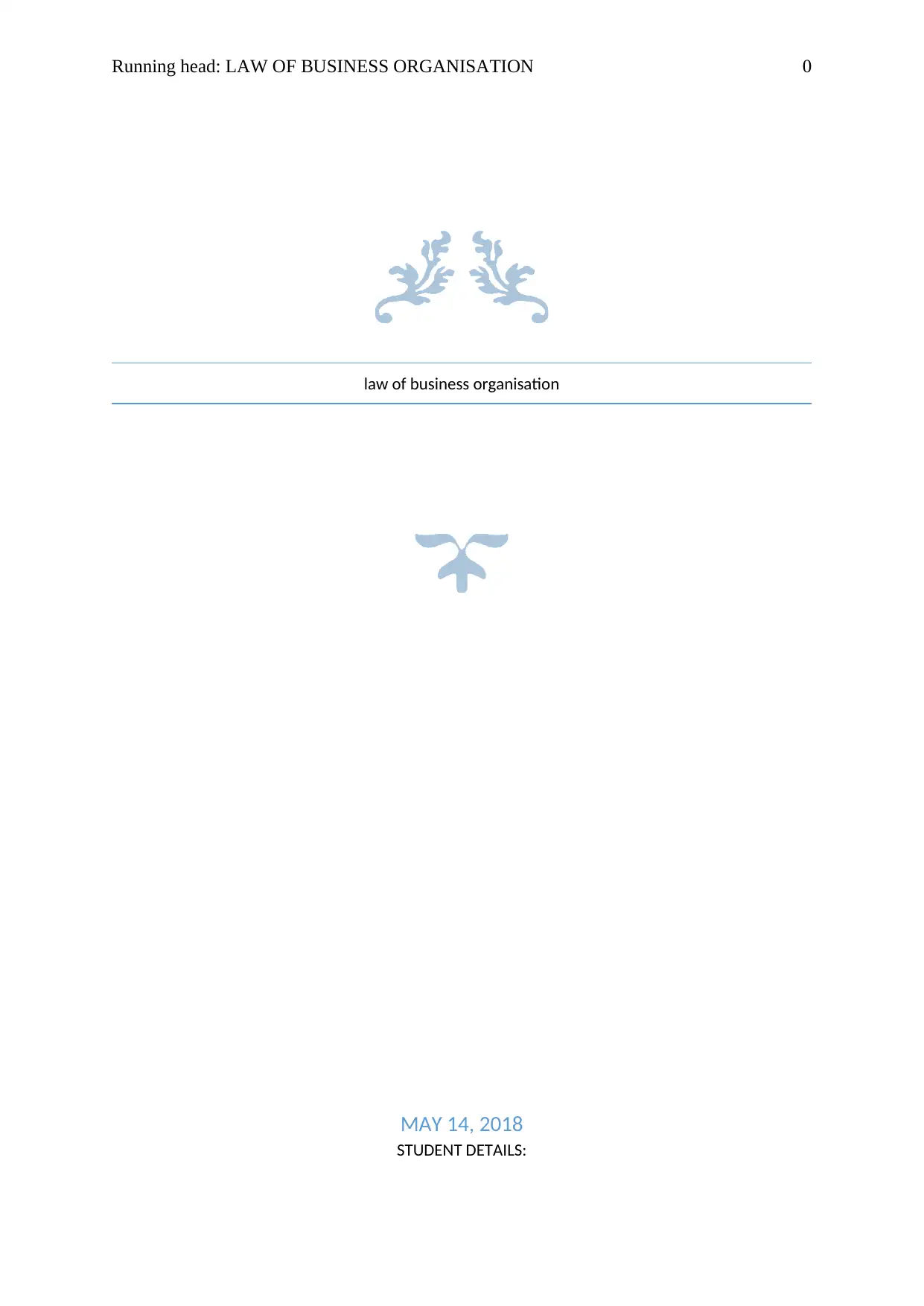
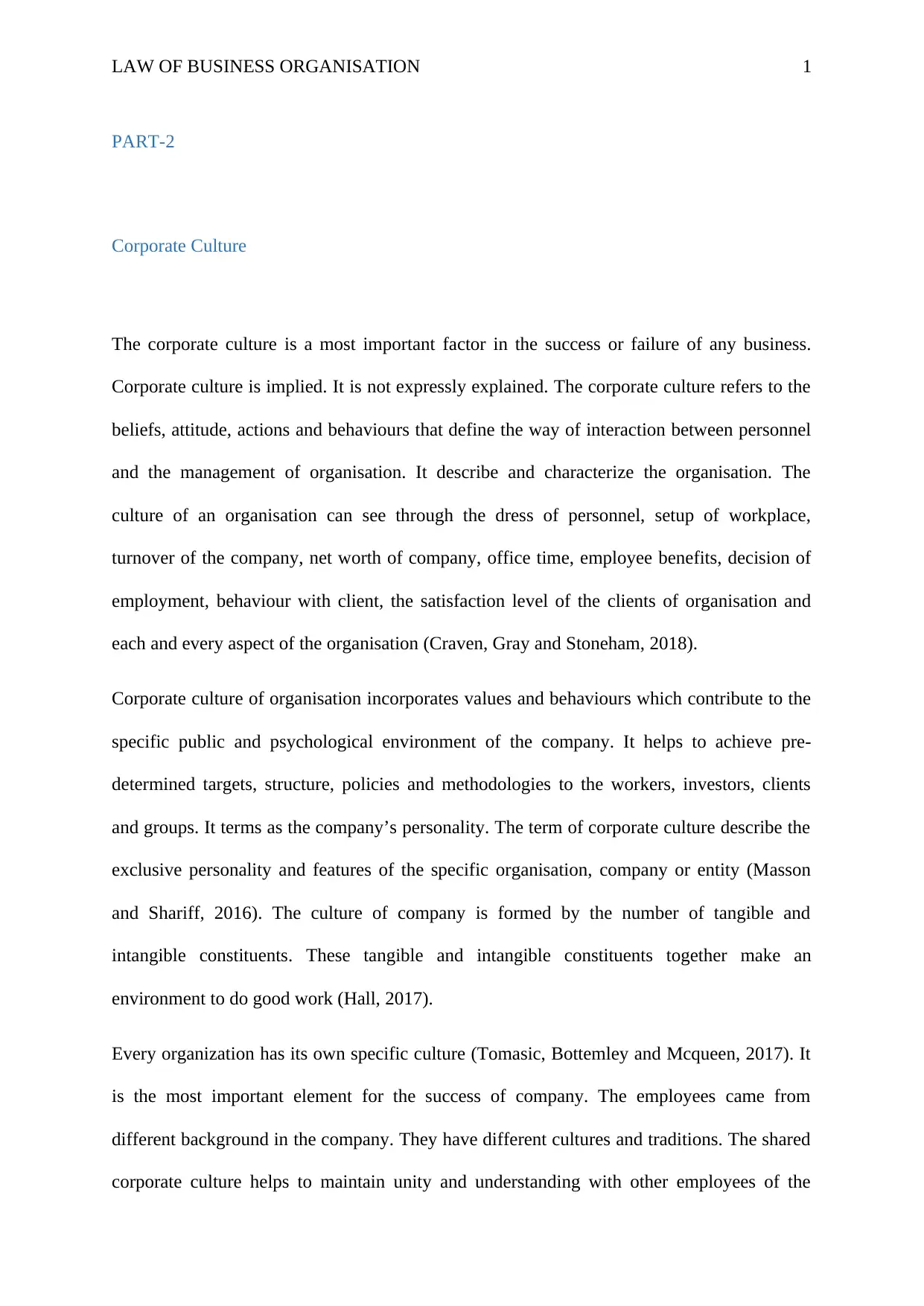
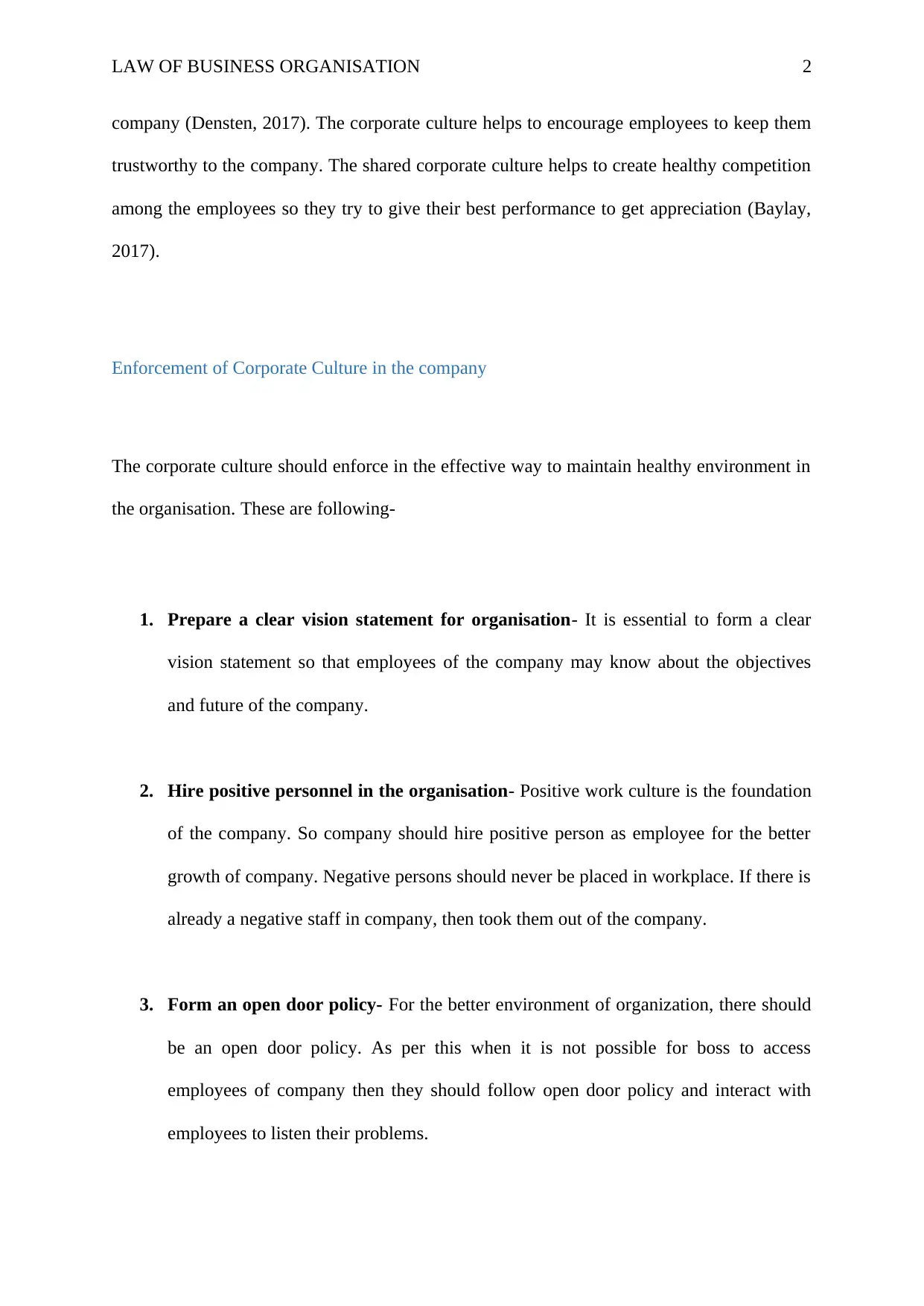

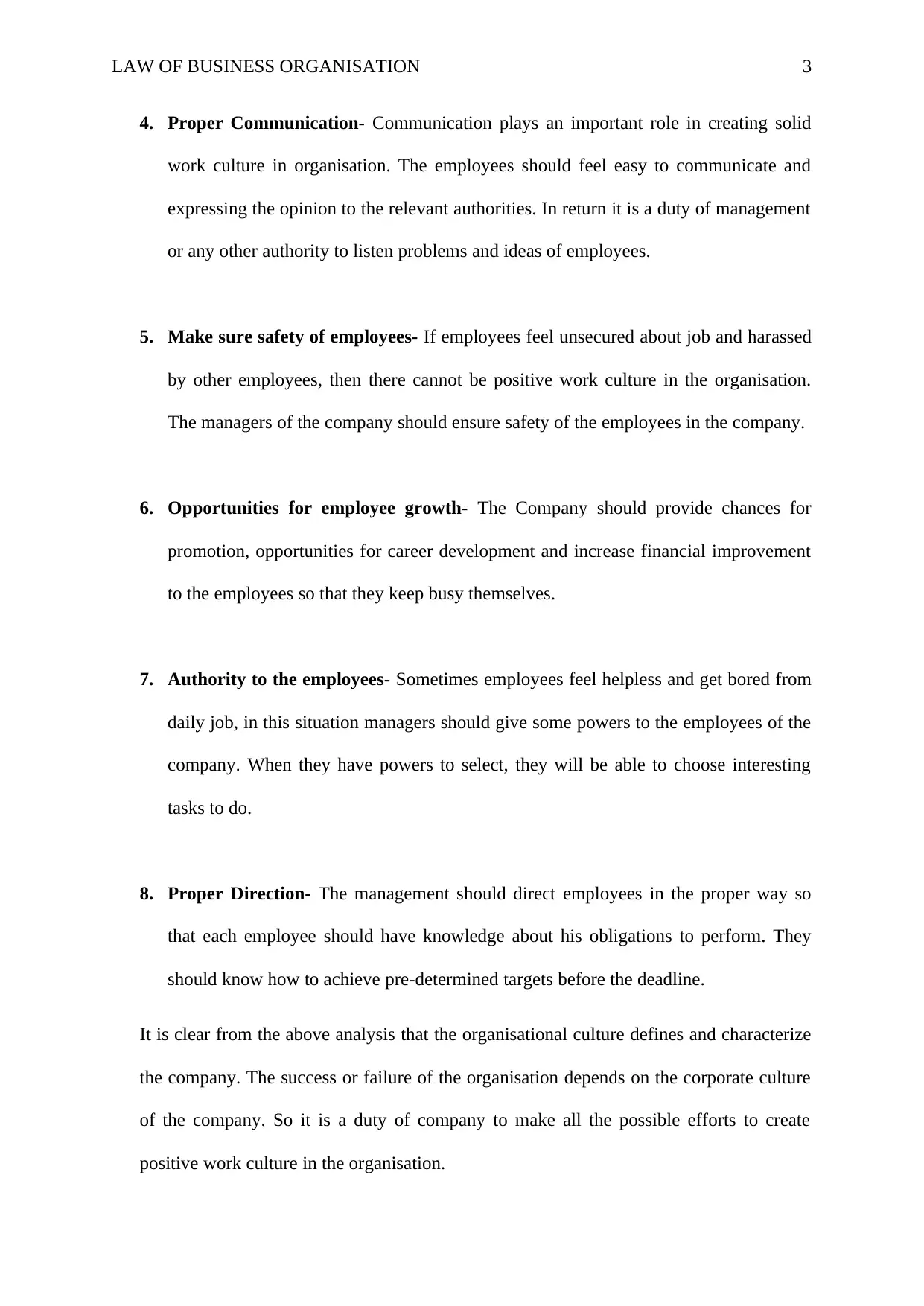
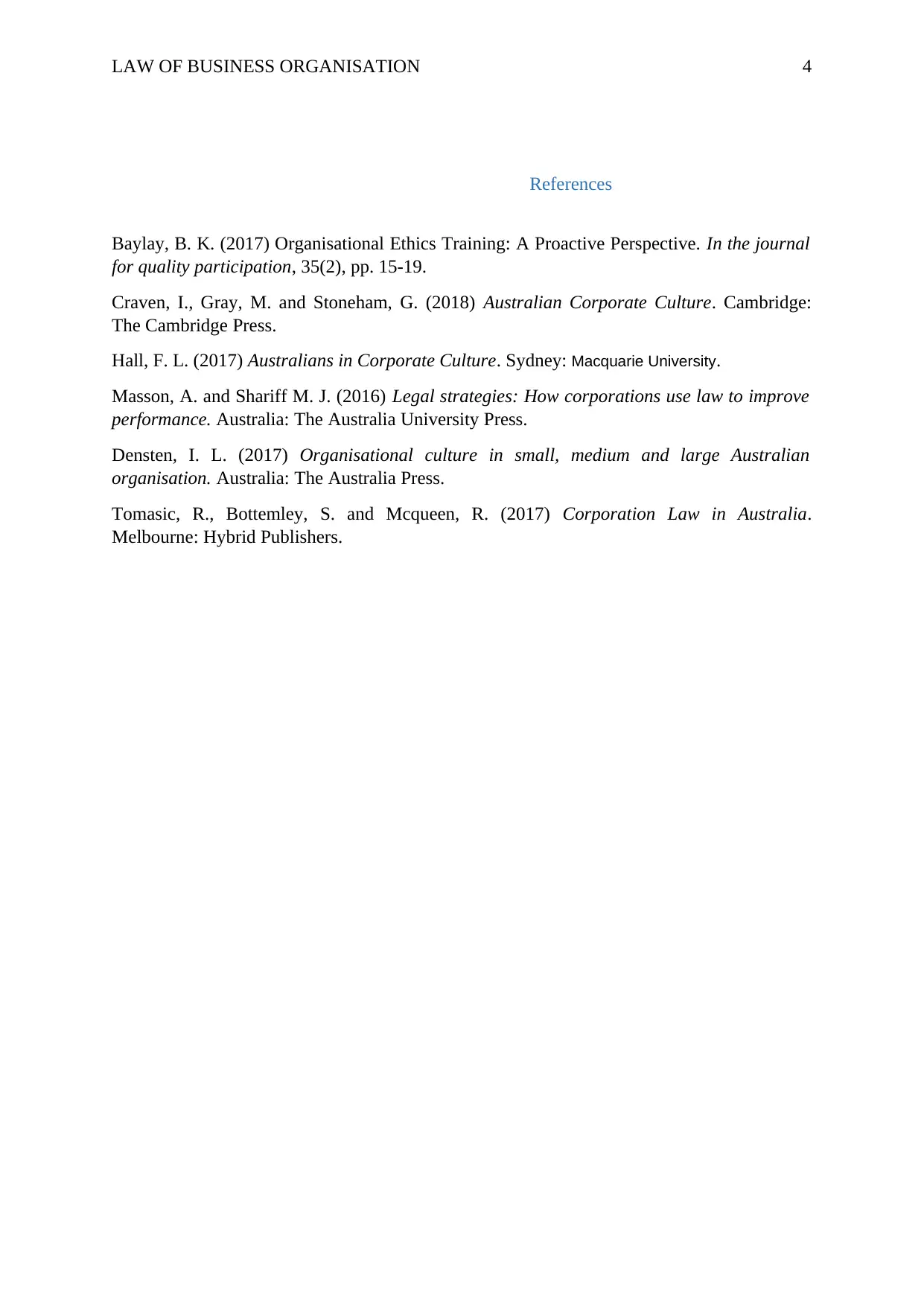






![[object Object]](/_next/static/media/star-bottom.7253800d.svg)